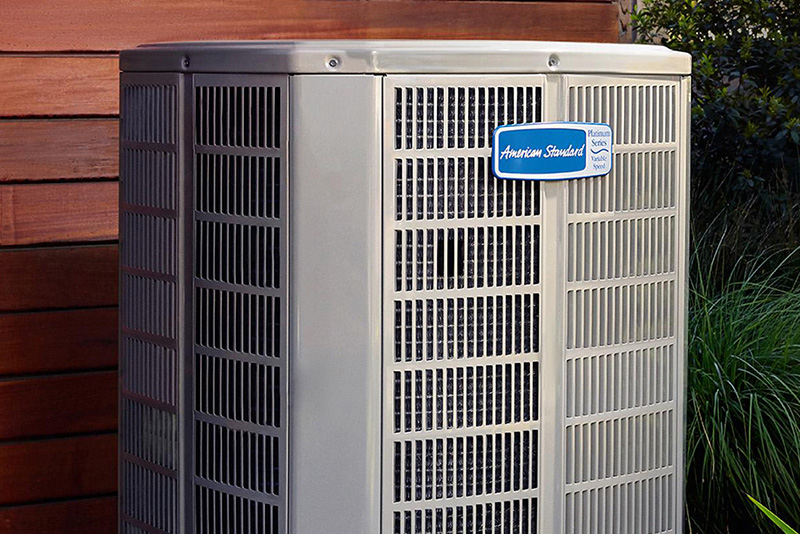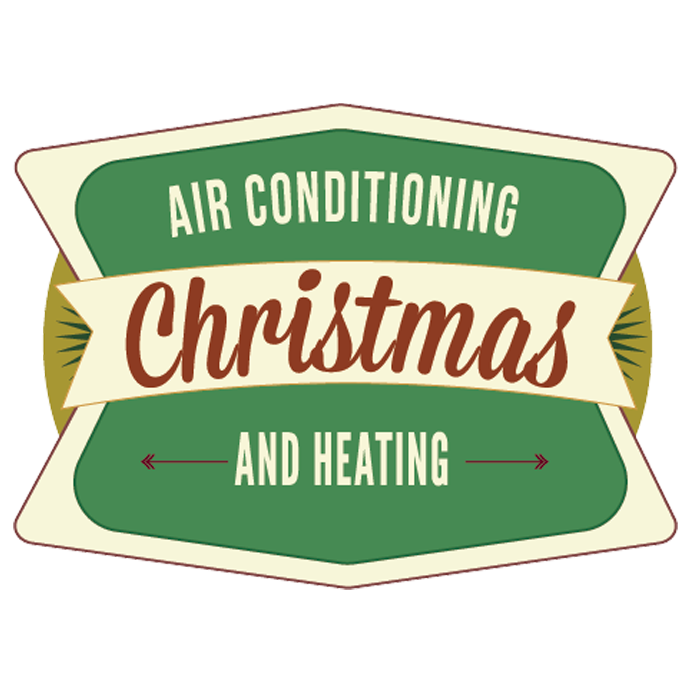Understanding Residential HVAC Systems
Heating, ventilation, and air conditioning (HVAC) systems are essential for indoor home comfort. Residential HVAC systems regulate temperature, humidity, and air quality to create a comfortable living environment. Homeowners have several options when selecting an HVAC system, each with different features and benefits. Understanding these systems helps choose the proper energy efficiency, comfort, and cost-effectiveness solution.

What Are Residential HVAC Systems?
Residential HVAC systems are designed to control indoor climate conditions by providing heating, cooling, and ventilation. These systems vary in size, configuration, and technology, allowing homeowners to select a system that meets their needs.
The Purpose of HVAC Systems in Homes
The primary function of residential HVAC systems is to regulate temperature and air quality. In colder months, they provide heat to maintain indoor warmth; in warmer seasons, they cool the air for comfort. Proper ventilation ensures air circulation, reducing pollutants, allergens, and excess moisture.
Key Components of Residential HVAC Systems
Residential HVAC systems consist of several essential components that work together to provide climate control:
- Thermostat – Controls temperature settings and system operation.
- Furnace – Provides heat using gas, electricity, or oil.
- Air Conditioner – Cools indoor air by removing heat and moisture.
- Heat Pump – Offers heating and cooling by transferring heat between indoor and outdoor environments.
- Ductwork – Distributes heated or cooled air throughout the home.
- Air Filters – Capture dust, allergens, and pollutants to improve indoor air quality.
Each component is critical in maintaining an efficient and effective residential HVAC system. Proper installation and maintenance help ensure consistent performance and longevity.
Types of Residential HVAC Systems
Homeowners can choose from several residential HVAC systems designed to meet different climate control needs. The right system depends on home size, energy efficiency, and budget.
Split HVAC Systems
A split HVAC system is the most common type of residential HVAC system. It comprises two central units: an outdoor compressor/condenser and an indoor evaporator coil. The furnace or air handler is inside the home, distributing heated or cooled air through ductwork. Split systems offer reliable performance and energy efficiency, making them popular for many homeowners.
Hybrid Split Systems
A hybrid split system functions similarly to a traditional one but includes an energy-efficient heat pump. Depending on outdoor temperatures and energy costs, this system can switch between gas and electric heating. Hybrid systems help reduce energy consumption and provide flexibility for homeowners looking to lower their heating expenses.
Ductless Mini-Split Systems
Ductless mini-split systems are ideal for homes without existing ductwork. These systems include an outdoor compressor and one or more indoor air-handling units. Each indoor unit is mounted on a wall and controlled independently, allowing for zoned heating and cooling. Ductless systems offer energy efficiency and flexibility, making them suitable for room additions, apartments, and homes where installing ductwork is impractical.

Packaged HVAC Systems
Packaged HVAC systems combine all heating and cooling components into a single outdoor unit, typically installed on a roof or a concrete slab. These systems are often used in homes with limited indoor space. Packaged systems are available in different configurations, including electric or gas-powered heating, and provide an efficient solution for climate control.
Geothermal Heating and Cooling Systems
Geothermal HVAC systems use underground pipes to transfer heat between the earth and the home. These systems rely on the consistent temperature of the ground to provide efficient heating and cooling. While the initial installation cost is higher than traditional systems, geothermal systems offer significant energy savings over time and have a long lifespan.
Each type of residential HVAC system has distinct advantages, and homeowners should consider their specific needs when selecting the best option for their home.
Choosing the Right Residential HVAC System
Selecting the right residential HVAC system depends on several factors, including home size, climate, energy efficiency, and budget. Homeowners should evaluate these aspects to ensure they invest in a system that meets their heating and cooling needs while minimizing energy costs.
Factors to Consider (Home Size, Climate, Efficiency, Budget)
- Home Size – The size of the HVAC system must match the home’s square footage. An oversized unit can lead to inefficient operation and higher energy bills, while an undersized system may struggle to maintain a comfortable temperature.
- Climate – In regions with extreme temperatures, a system with a high Seasonal Energy Efficiency Ratio (SEER) for cooling or a high Annual Fuel Utilisation Efficiency (AFUE) for heating is recommended.
- Energy Efficiency – Choosing an energy-efficient system can reduce long-term operating costs. Look for ENERGY STAR®-certified models with high SEER and AFUE ratings.
- Budget – While upfront costs are essential, homeowners should also consider long-term savings from energy efficiency and potential maintenance costs.
Comparing Different HVAC System Options
- Traditional Split Systems – Reliable and widely available but require ductwork.
- Hybrid Systems – Energy-efficient but may have a higher initial cost.
- Ductless Mini-Splits – Offer zoned control and are ideal for homes without ducts.
- Packaged Systems – Space-saving option, commonly used in homes with limited indoor space.
- Geothermal Systems – High initial investment but provide long-term energy savings and environmental benefits.
Each homeowner’s needs and circumstances will determine their property’s most suitable residential HVAC system. Consulting with an HVAC professional can help you make an informed decision.
Energy Efficiency and Smart Technology in Residential HVAC
Modern HVAC systems incorporate energy-efficient features and innovative technology to optimize home comfort while reducing energy costs. Heating and cooling technology innovations help homeowners manage their indoor climate more effectively.
Importance of Energy Efficiency in HVAC Systems
Energy-efficient residential HVAC systems use less power while maintaining the same comfort level. Benefits include:
- Lower monthly energy bills
- Reduced environmental impact
- Improved system longevity
- Enhanced indoor air quality
Government incentives and rebates may also be available for homeowners upgrading to high-efficiency HVAC systems.
Smart Thermostats and Automation Features
Smart thermostats and automated HVAC controls allow homeowners to adjust temperature settings remotely. Features include:
- Programmable Schedules – Adjust heating and cooling based on daily routines.
- Wi-Fi Connectivity – Enables remote control via smartphone apps.
- Learning Capabilities – Some smart thermostats adapt to user preferences for automatic temperature adjustments.
- Energy Usage Reports – Provide insights into consumption patterns to optimize efficiency.
Integrating innovative technology with a residential HVAC system improves convenience and contributes to long-term cost savings.
Maintenance and Longevity of Residential HVAC Systems
Regular maintenance is essential for keeping residential HVAC systems operating efficiently and extending their lifespan. Proper care reduces the risk of breakdowns, improves energy efficiency, and ensures consistent indoor comfort.
Regular Maintenance for Optimal Performance
Routine HVAC maintenance helps prevent costly repairs and system failures. Homeowners should follow these best practices:
- Replace air filters – Change filters every 1-3 months to improve airflow and indoor air quality.
- Clean vents and ductwork – Remove dust and debris to maintain proper airflow.
- Inspect and clean the outdoor unit – Keep the condenser unit free from leaves, dirt, and obstructions.
- Schedule professional tune-ups – A certified HVAC technician should inspect the system at least once a year to check for wear and ensure optimal performance.
- Monitor thermostat settings – Proper programming reduces energy waste and extends system life.
When to Repair vs. When to Replace an HVAC System
Over time, HVAC systems become less efficient and may require frequent repairs. Homeowners should consider replacement when:
- The system is over 15 years old and experiences frequent issues.
- Repair costs exceed half the price of a new unit.
- Energy bills have increased significantly despite maintenance efforts.
- The system struggles to maintain consistent temperatures throughout the home.
Upgrading to a newer, energy-efficient HVAC system can improve comfort and reduce long-term costs.
Common Issues and Troubleshooting Tips
Even well-maintained HVAC systems can experience occasional issues. Common problems include:
- Uneven heating or cooling may result from blocked vents, leaky ductwork, or incorrect thermostat settings.
- Unusual noises – Loud or strange sounds could indicate loose components, motor issues, or debris in the system.
- Weak airflow – Often caused by clogged air filters or duct obstructions.
- Higher energy bills – A sudden cost increase may suggest inefficiencies, such as refrigerant leaks or a malfunctioning thermostat.
Professional HVAC services should be consulted for repairs and adjustments if these issues persist.
Contact Christmas Air Conditioning, and Plumbing
For professional HVAC installation, maintenance, or repairs, contact Christmas Air Conditioning, and Plumbing. Our experienced technicians can help you choose the best residential HVAC system for your home. Call 469-919-9928 today to schedule a consultation.
